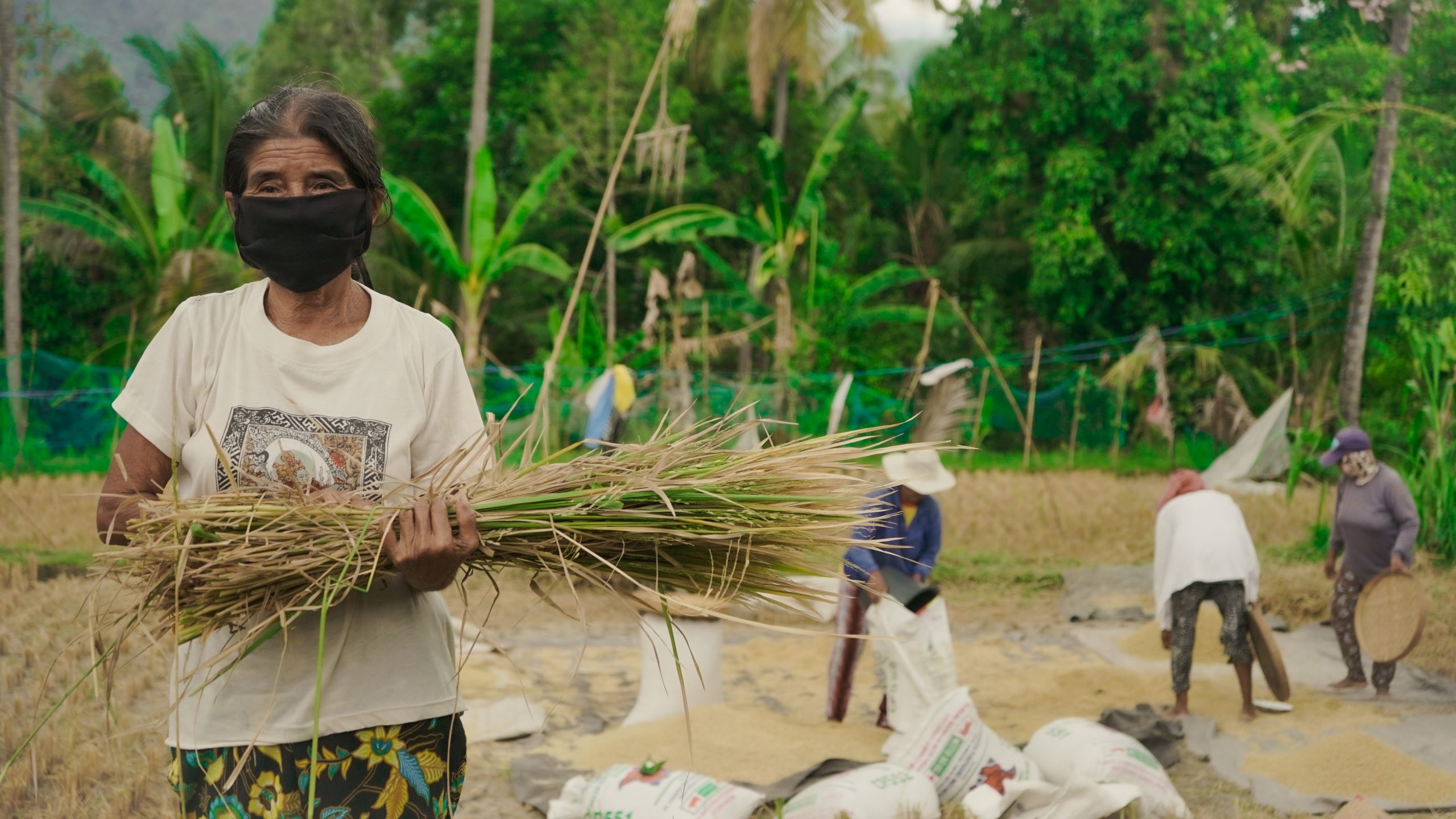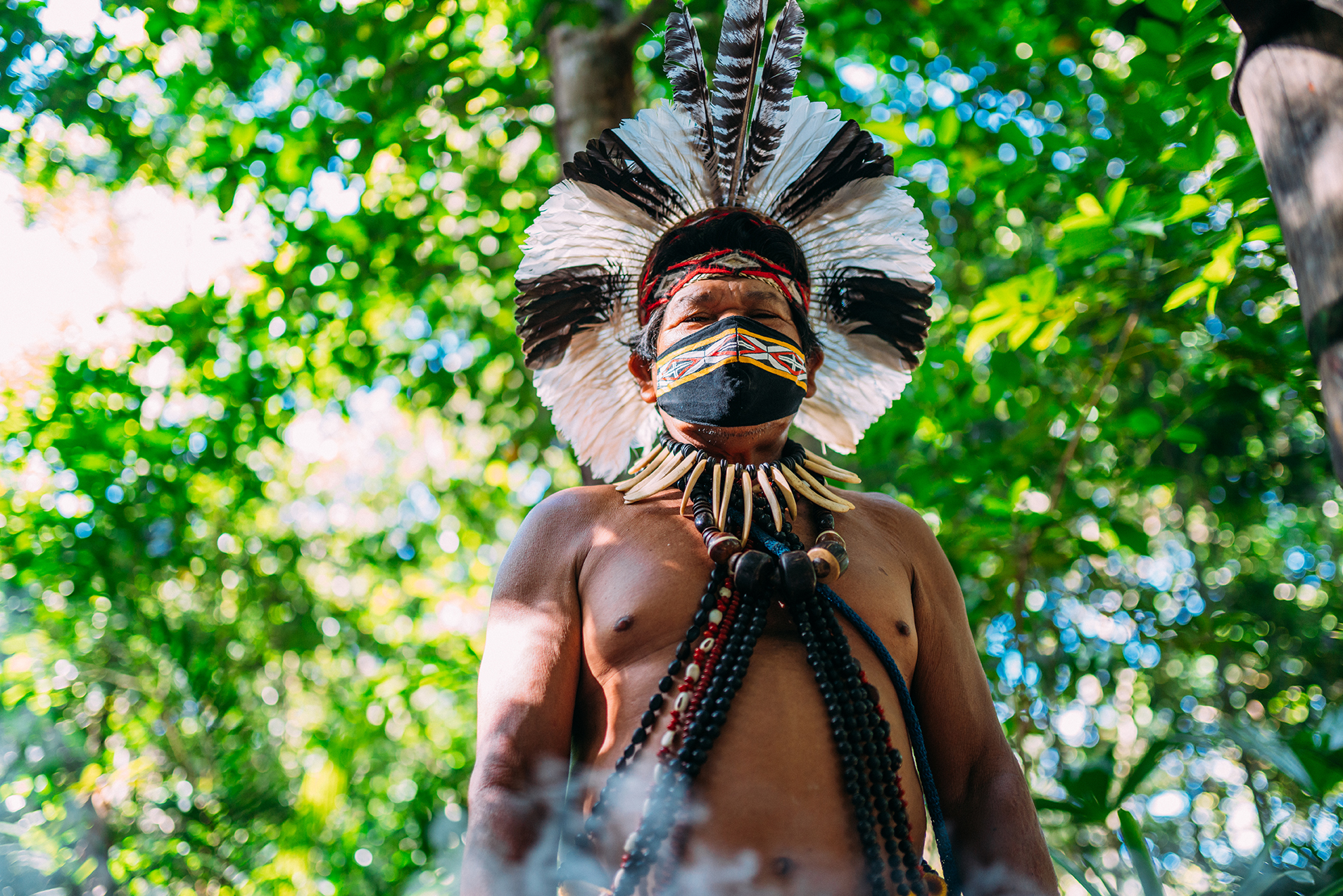2021-05-27
By Jeremy Gaunt
With crucial United Nations conferences due this year on both climate change and biodiversity, experts have called for Indigenous People to be included in the meetings, for current laws protecting forests and the wildlife within to be enforced, and for money to be allocated towards the further protection of such lands by those who live there.
Such action should all add up to a healthier world, with protected Indigenous land lessening the dangers from of zoonosis, the transference of animal-based diseases into human infections such as Ebola, Zika, Lyme Disease, E. Coli and, indeed, COVID-19, they said.
The calls came at a May 20 Land Dialogues webinar hosted by the Tenure Facility, Land Portal, and the Ford and Thomson Reuters foundations to discuss what role Indigenous Peoples have in breaking the link between environmental imbalances and emerging infectious diseases.
The main message was that ensuring the rights of Indigenous Peoples to their traditional lands can protect against environmental degradation and, by extension, the zoonosis that can accompany it.
“Indigenous Peoples actively defend … territories against land use change, agricultural intensification, wildlife trade and harmful extractive projects,” said Joji Carino, senior policy adviser at the Forest Peoples Programme.

But there was also agreement that most of the world’s environmental and health problems are interlinked and should be treated as such. This included viewing Indigenous areas around the world as a network, recognising that animals are as much in danger from human diseases as vice versa, and accepting that global health policy should be all-encompassing.
As one example, Eric Fevre, chair of veterinary infectious diseases at the University of Liverpool, made the case for a global One Health policy, the designing of programmes and policies locally, nationally and internationally to attain the best health for the planet as a whole.
“Traditionally … we think of health in different populations separately,” he said. “We worry about humans and their health as a separate problem from say, animals and their health, or … the health of the broader environment in which we all live.”
A unified, global health paradigm was need, Fevre said.
"We worry about humans and their health as a separate problem from say, animals and their health, or ... the health of the broader environment in which we all live."
The role of Indigenous Peoples in this, according to Carlos Zambrana-Torrelio, associate vice president of EcoHealth Alliance, was linked to their proven environmental guardianship of the lands they inhabit.
“Most of the biodiversity of the world exists in … landscape that is traditionally owned by Indigenous People and local communities,” he said. “(A) global network of well-managed forests can really help (protect) human health.”
Two other panellists — Gladys Kalema-Zikusoka, a Ugandan veterinarian and founder of Conversation Through Public Health, and Francisco Piyako, leader of the Indigenous Ashaninka People of Peru and Brazil — spoke of the impact in specific local areas.
Piyako, for example, said that Indigenous People in his region were under attack both from industrial and agricultural deforestation and from the COVID-19 pandemic itself.
“We are fighting for our land rights and for the protection of the forest and biodiversity. When you start changing and destroying the environment, our people go with it and perish with it,” he said.

Kalema-Zikusoka, meanwhile, spoke of the complexity of human-animal interaction. Mountain gorillas in Uganda, for example, were benefitting from conservation areas, and the local people from related tourism revenue.
But the interaction also meant that the gorillas were susceptible to human diseases such as scabies. So, the health of local communities is paramount in species conservation.
“People are realising that (if we) want to avoid future pandemics, you have to go back to preserving culture and preserving nature and preserving … the rights of people who are living in certain places,” she said.
Keynote speaker David Nabarro, the World Health Organization’s special envoy on COVID-19 summed up the overall call for a more unified approach to health and Indigenous rights.
“Land rights, particularly for poorer people, are absolutely key both to dealing with the inequities associated with pandemics and also reducing the risk of zoonotic disease,” he said, adding that a One Health approach to policy would go a long way towards alleviating problems.
"We are fighting for our land rights and for the protection of the forest and biodiversity. When you start changing and destroying the environment, our people go with it and perish with it"
The U.N. Climate Change Conference – COP26 – will be held in November; the U.N. Summit on Biodiversity takes place in September. Panellists at the Land Dialogues webinar were asked what single message they would give to the U.N. meetings. Their answers, edited for clarity:
“If you want to succeed in conservation and protecting ecosystems, species and genetic diversity, really respect the rights of Indigenous Peoples. Put that in your strategy.”
– Joji Carino
Senior policy adviser, Forest Peoples Programme
“Ministers of finance need to listen and allocate the resources necessary for a lot of what we know works to be put into action. If finances aren’t available, we can keep talking, but things will never really change.”
– Eric Fevre
Chair of veterinary infectious diseases, University of Liverpool
“Put more resources into both human and animal healthcare. When you have disease outbreaks among humans, the animal source of the disease remains because there are not enough resources to prevent it.”
– Gladys Kalema-Zikusoka
Ugandan veterinarian and founder of Conversation Through Public Health
“We have made huge advances in public policy, but now the legislation needs to be enforced — to come off paper and become real, tangible.”
Francisco Piyako
Leader of the Indigenous Ashaninka People (Peru/Brazil)
“We need to make sure that Indigenous Peoples participate in the negotiations. Usually, they are not represented because they are not included by their governments. We need to make sure they are there speaking, raising their voices.”
– Carlos Zambrana-Torrelio
Associate vice president, EcoHealth Alliance
Articles